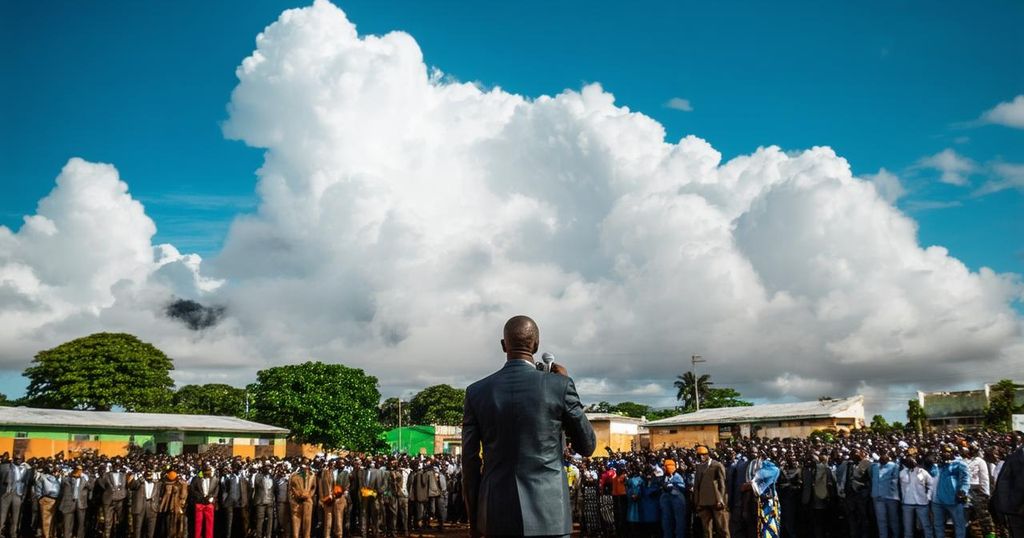Mozambique’s Ruling Party Declared Winner Amid Fraud Allegations
Daniel Chapo of the Frelimo party has been announced as the winner of Mozambique’s presidential election, garnering over 70 percent of the votes. Opposition claims of electoral fraud have surfaced, particularly from Venancio Mondlane, who received more than 20 percent. The political environment has been further strained by violence against opposition figures and harsh crackdowns on protests. Concerns regarding the electoral process have also been raised by European observers, calling into question the legitimacy of the results.
The Frelimo party’s presidential candidate, Daniel Chapo, has been officially declared the victor of the recent Mozambican presidential election, securing over 70 percent of the votes, according to the National Election Commission (CNE). This announcement has been met with allegations from opposition groups that suggest widespread electoral fraud. Chapo will lead Mozambique in January and is notable for being the first president born after the nation gained independence from Portugal in 1975, a pivotal moment that led to 49 years of Frelimo governance and a subsequent civil conflict with the rebel group Renamo, which is now the main opposition party. Venancio Mondlane, Chapo’s primary rival and an independent candidate, reportedly garnered over 20 percent of the vote and has publicly claimed victory, accusing Frelimo of manipulating the election process to secure the results. He has initiated calls for protests against the ruling party’s extended reign, emphasizing a desire for political change. The election process has been scrutinized by international observers, including a European Union mission that raised concerns regarding interference in the vote-counting process and noted some irregularities in the reporting of results. Recent violence has also marred the political landscape, with the tragic killing of two opposition officials, prompting accusations against the security forces by Mondlane’s party. As tensions rise following the election and calls for reform are echoed by the opposition, the Frelimo party faces significant public scrutiny about its electoral integrity and governance practices.
The recent presidential election in Mozambique is significant as it marks a continuation of Frelimo’s long-standing rule over the country since its independence from Portugal. Frelimo’s dominance has been characterized by accusations of electoral manipulation and lack of transparency. The party has faced growing opposition, particularly from Renamo, which emerged from a violent civil war. The political climate has been further complicated by recent violence targeting opposition members, transforming the landscape into one of contention and conflict as political leaders and international observers call for accountability and reform in future elections.
In conclusion, the declaration of Daniel Chapo as the winner of Mozambique’s presidential election has ignited fierce claims of electoral fraud and has led to increased tensions among opposition parties. The election results reflect a continuity of the Frelimo party’s leadership, yet they are shadowed by allegations of manipulation and violence against opposition members. As calls for protests and demands for change resonate within the populace, the government’s response and the international community’s attention will be crucial in shaping Mozambique’s political future.
Original Source: www.aljazeera.com




Post Comment